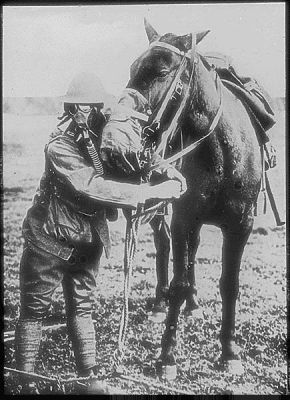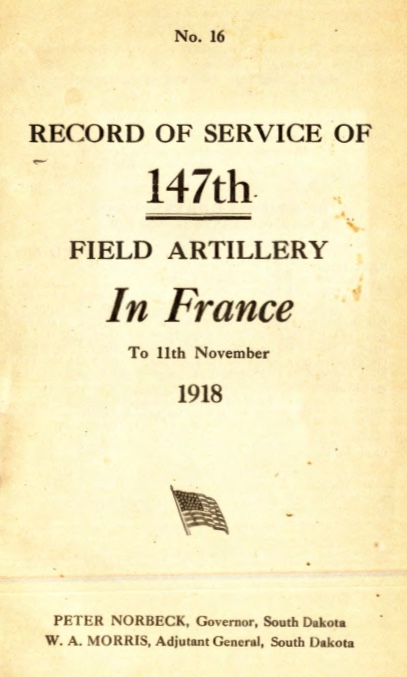On October 5, 1918 near Bois de Bantheville, France, the 89th Division, of which the 147th Field Artillery was a part, fought farther into the country as the war with Germany was nearing an end. It was at this time that two officers in the 147th Field Artillery were recognized, not only by their unit, but by the allied soldiers who saw them in action.
Two South Dakota National Guard medical officers, Capt. Edward W. Jones, of the 1st Battalion and Capt. Roy F. Sackett of the 2nd Battalion were written about by their peers. Of Capt. Jones one of Division officers wrote, “In tribute to our little medical man, the danger was never too great for him to go to the aid of the man needing him. Prompted by duty alone and never protecting himself he risked his life time and time again and deserved a cross or a crown, but I presume he never got either.”
On August 18, 1918 Capt. Sackett and six enlisted men from the Medical Section were gassed near Courville. One of the gassed enlisted medics was Pvt. 1st Class Walter H. Morgans who was the father of a well-known retired Watertown, South Dakota National Guardsman, Master Sgt. James Morgans.
From June 8, 1918 until November 11, 1918 the 147th Field Artillery remained on the front. During that period 21 were killed, four were missing in action and presumed dead, 114 wounded, and 70 were gassed.
Another commander gassed was Captain Eugene Foster who had a bad case of mustard gas, and was hospitalized for a month.
The loss of horses was appalling. Battery D alone, between August 1st and August 25th, lost 14 horses to shellfire, and 30 more were evacuated because of wounds. Because of the gas warfare going on Protective masks were issued for horses. One story of horses that came from WW I was a about a horse named Sailor, “He would work for 24 hours a day without winking. He was quiet as a lamb and as clever as a thoroughbred, but he looked like nothing  on earth, so we lost him. The whole artillery battery kissed him goodbye and the drivers and gunners who fed him nearly cried.”
on earth, so we lost him. The whole artillery battery kissed him goodbye and the drivers and gunners who fed him nearly cried.”
Acknowledgement to MSG James Morgans, who allowed us to use the diary and notes, along with a book, THE 147TH FIELD ARTILLERY IN WORLD WAR I of his late father, to compile this story.


